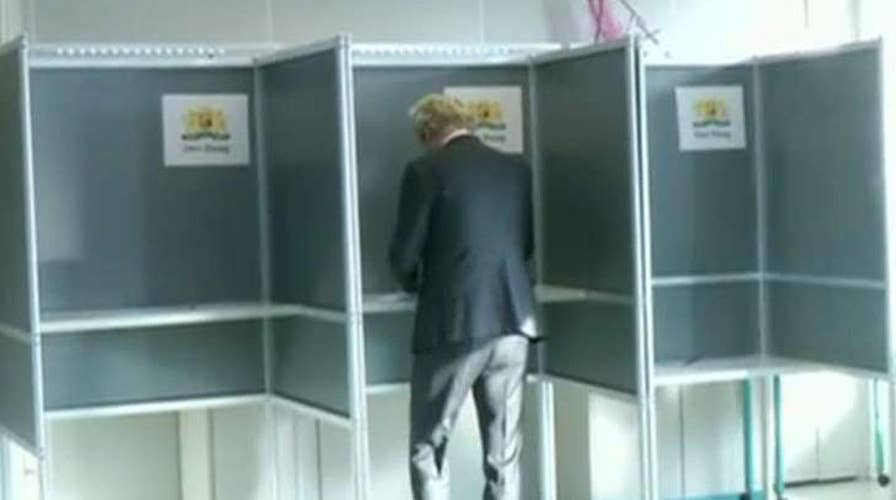LONDON – Call it the “Trump Effect” here in Europe. For better or for worse, depending on where you stand politically.
RUSSIA'S NEWEST TARGET: GERMAN CHANCELLOR ANGELA MERKEL
Voters are going to the polls in three key European U.S. allies in the coming months. And President Trump-style populists are having a major impact.
“They are angry,” noted French political analyst Christian Malard told me. “They are like ‘mad dogs’... an expression you use in the U.S.!”
In one month, the Netherlands is holding parliamentary elections. The anti-immigrant, anti-EU party of Geert Wilders, dubbed in the media here the “Dutch Donald Trump,” could gain the most seats.
WILDERS WARNS OF BACKLASH IF HE IS FROZEN OUT
In French presidential elections later in the spring, National Front leader Marine Le Pen is touted to win the most votes in at least the first round. She’s an open fan of Trump.
And in the fall, the re-election bid of German Chancellor Angela Merkel could be hurt by a new anti-immigrant party. Her refugee policy has been criticized by Trump.
“I wouldn’t be surprised,” long-time German political analyst Thomas Kielinger said, “if the Trump emergence, the Trump phenomenon, is an enhancer to some of what we’re seeing in Europe.”
As in the U.S., immigration and security are key issues in the upcoming campaigns.
Current riots in France are fanning the flames.
In liberal Holland, Geert Wilders doesn’t want just a Muslim ban, he wants to send some back, and monitor mosques.
“He has been opposing Islam for over a decade now,” leading Dutch political analyst Tom-Jan Meeus explained. “This has been his single most important issue.”
And as in the U.S., economic woes are another major issue. The European Union is seen as a part of the problem. Last year’s UK Brexit vote to leave the EU confirmed that.
“Many in the public are fed up with the situation left by the incumbent governments,” Malard said. “They want a change definitely.”
Kielinger added, “The result could easily lead to further disintegration.”
The thing is, none of these newer parties are expected to take the reins of power anywhere. Blame that on the intricacies of European parliamentary coalition building, plus nervousness in the public about the parties’ ability to rule.
The Trump administration’s early stumbles are also seen here as a reminder of the challenges of governing.
And while some don’t like the policies of the populist parties or of Trump, many in Europe agree the political landscape here is changing dramatically.
“It’s quite possible to have a big influence on governments here,” Meeus told us, “even when you’re not in them.”
One more thing: Like in the U.S., folks are wary of what the polls are saying now.
“The polls are not reliable,” said Malard. “Everything may happen.”
Stay tuned.

